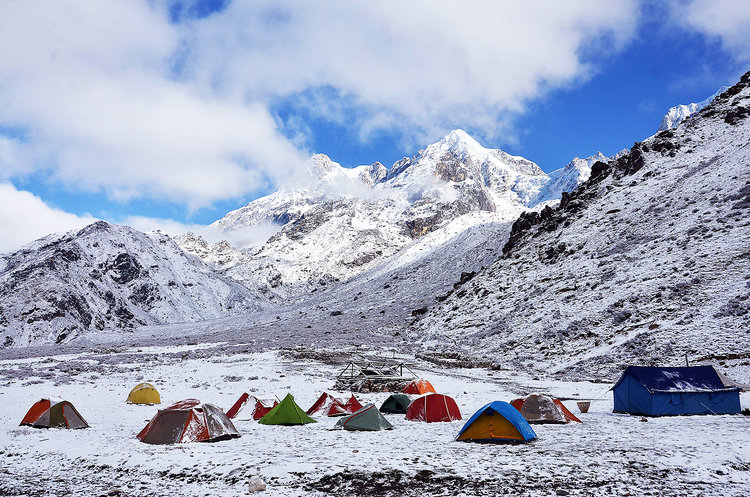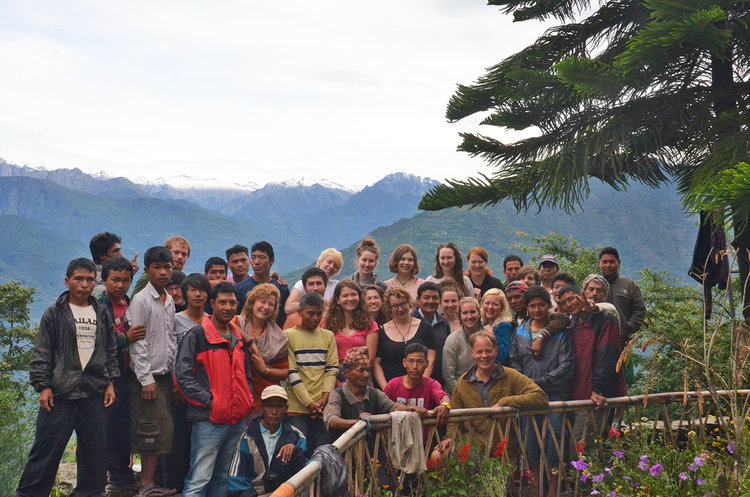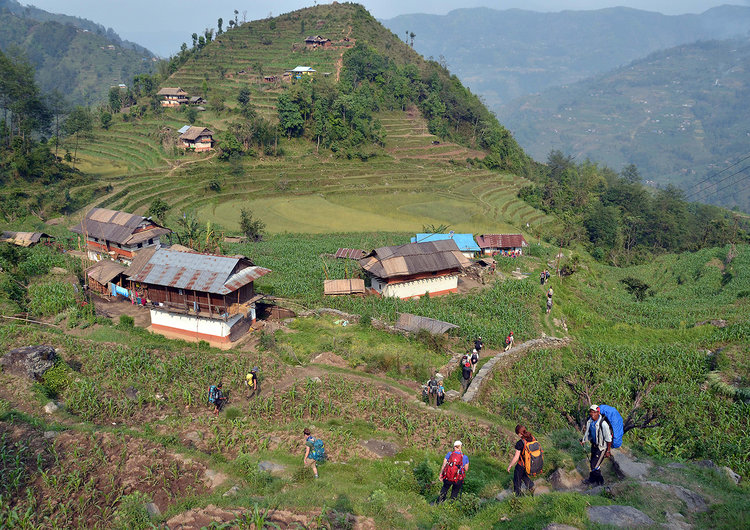 The Program
The Program
After an orientation in Kathmandu, Nepal’s capital, we will begin our field studies in the near-tropical, forested floodplains of Chitwan National Park. These lush forests support populations of rare mammals like rhinoceros, sloth bears, Bengal tigers, langur monkeys, hundreds of species of birds, and two crocodile species. Here it is possible to see large wild mammals that have disappeared across much of their range, and study the challenges of wildlife management in one of the lesser developed regions of Asia.
We then travel into the Himalayan foothills and proceed on foot to the valleys of the High Himalaya. Our field site is the mountain region of far eastern Nepal, which includes Kangchenjunga Conservation Area and Makalu Barun National Park. The cultural landscape remains quite traditional here and the habitat diversity is exceptional, with deep valleys separated by some of the highest peaks in the world. Kangchenjunga exceeds 28,000 feet elevation and overlooks a wild landscape of active glaciers and steep river valleys. High elevations are alpine, but the river valleys are lush and subtropical. Our program will visit a wide range of climatic zones on the flanks of the eastern Himalaya. In eastern Nepal, we may have the chance to interact with local conservation groups, affording team members an opportunity to directly observe the field methods of those people best positioned to influence Himalayan conservation strategies. We will also conduct our own field studies and observations to gain skills and knowledge about the habitat, key behaviors and conservation needs of the wildlife and wildlands of this area.
By the end of the project, each of us will have acquired field experience in rich, important wildlife habitat; developed an understanding of the ecology, behavior, and habitat needs of key wildlife species; learned a great deal about the geography of a spectacular mountain region; and gained practical experience with conservation management in Nepal’s dynamic, rapidly changing society.
Program Details
Location: Kathmandu, Nepal
Dates: Fall 2024: September 27 - November 9, 2024
Spring 2025: April 10–May 23, 2025
Applications: Accepted on a rolling admission basis
Accommodations: Primarily camping or rural lodge
Credits: 15 quarter credits or 10 semester credits
Language: English instruction
Courses: Environmental Wildlands Studies, Environmental Field Survey, Wildlands Environment and Culture
Prerequisites: One college level course in environmental studies, environmental science, ecology or similar. 18 years of age
Program Costs
Nepal Fall 2024
$ 150 Application Fee
$ 7,000 Program Fee
$ 4,750 In-Country Logistics Fee
$ 2,300 Estimated Airfare and Mandatory Travel Insurance
$ 700 Estimated Food and Personal Expenses
$14,900 Total Estimated Cost
Fall 2024: Program fees due by August 1, 2024
Nepal Spring 2025
$ 150 Application Fee
$ 7,000 Program Fee
$. 4,750 In-Country Logistics Fee
$ 2,300 Estimated Airfare and Mandatory Travel Insurance
$ 700 Estimated Food and Personal Expenses
$14,900 Total Estimated Cost
Spring 2025: Program fees due by February 1, 2025



